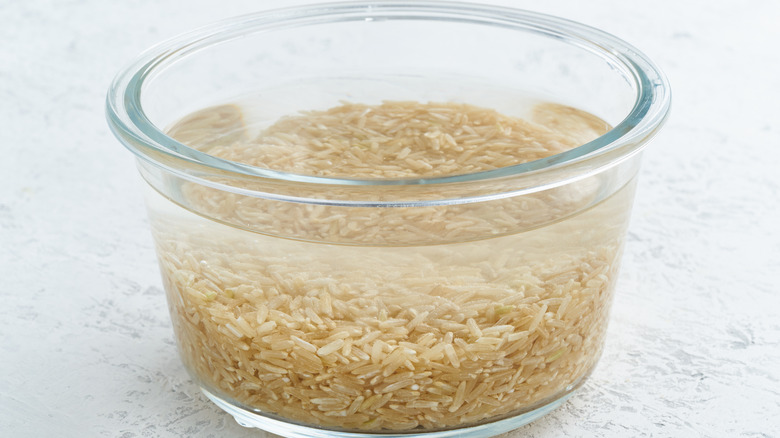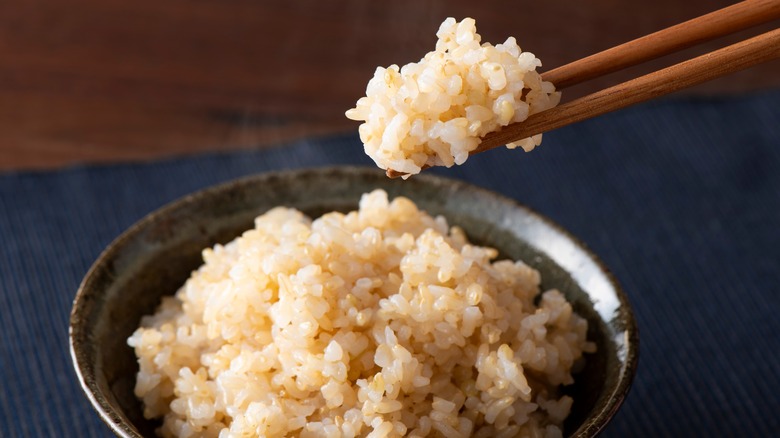Soak Brown Rice Overnight To Cut Cooking Time In Half
Though it's something that seems so simple on paper, we all make mistakes when we're cooking rice. Switching from white rice to brown without realizing they have different cooking times can be one of those mistakes — one we learn the hard way when we take a bite and get an unpleasant, crunchy surprise. The real difference between white and brown rice is that brown rice retains the bran and the germ, which makes it more nutritious, but also means it takes longer to cook. Brown rice takes about 40 minutes to cook, which is a considerable time investment and a possible barrier if you want to whip something up fairly quickly.
One way to help with the cooking time is by doing a bit of preparation the night before, namely by soaking the rice overnight. Once it's soaked, when you cook it the next day it should be done in roughly half the time, and in no longer than it takes to cook white rice. And it couldn't be easier. It's generally suggested that you should fill a pot with a two-to-one ratio of water to rice, then cover the pot and store it in the fridge overnight. Six hours of soaking time will also suffice, which is great news if you forget or don't have time at night — just prepare your rice first thing in the morning and it will be ready to cook by dinnertime. The main benefit here is that this trick can fit into any routine, allowing you to cut some prep time out of your cooking.
Tips for soaking brown rice
The more safety-conscious among us may wonder at the possible risks of leaving food in stagnant water for a prolonged period of time, but there's not much to worry about in this instance. As long as you don't exceed 24 hours of soaking time, which can result in fermentation of the rice, it's perfectly safe. It is recommended that you keep the soaking rice in the fridge if you're soaking for longer than about an hour, as rice that's soaked in room temperature water might have a less pleasant flavor and texture and might result in microbial contamination (per the National Institutes of Health).
As long as you refrigerate the soaking rice, there's no real impact on flavor, with the rice maintaining its taste after soaking. Whether you cook the rice using water from your soak or switch to fresh water is up to you, as both methods work. However, if you want fluffier rice you should probably switch the water out, rinse off your rice, and cook it in fresh water. This is because the starches in the rice will be absorbed into the water during the soaking process, which will create a denser, stickier end product. With this simple trick of soaking your rice, you can remove one of the biggest barriers to cooking brown rice, and open up a world of options for meals to make with this deliciously nutty and nutritious whole grain.

